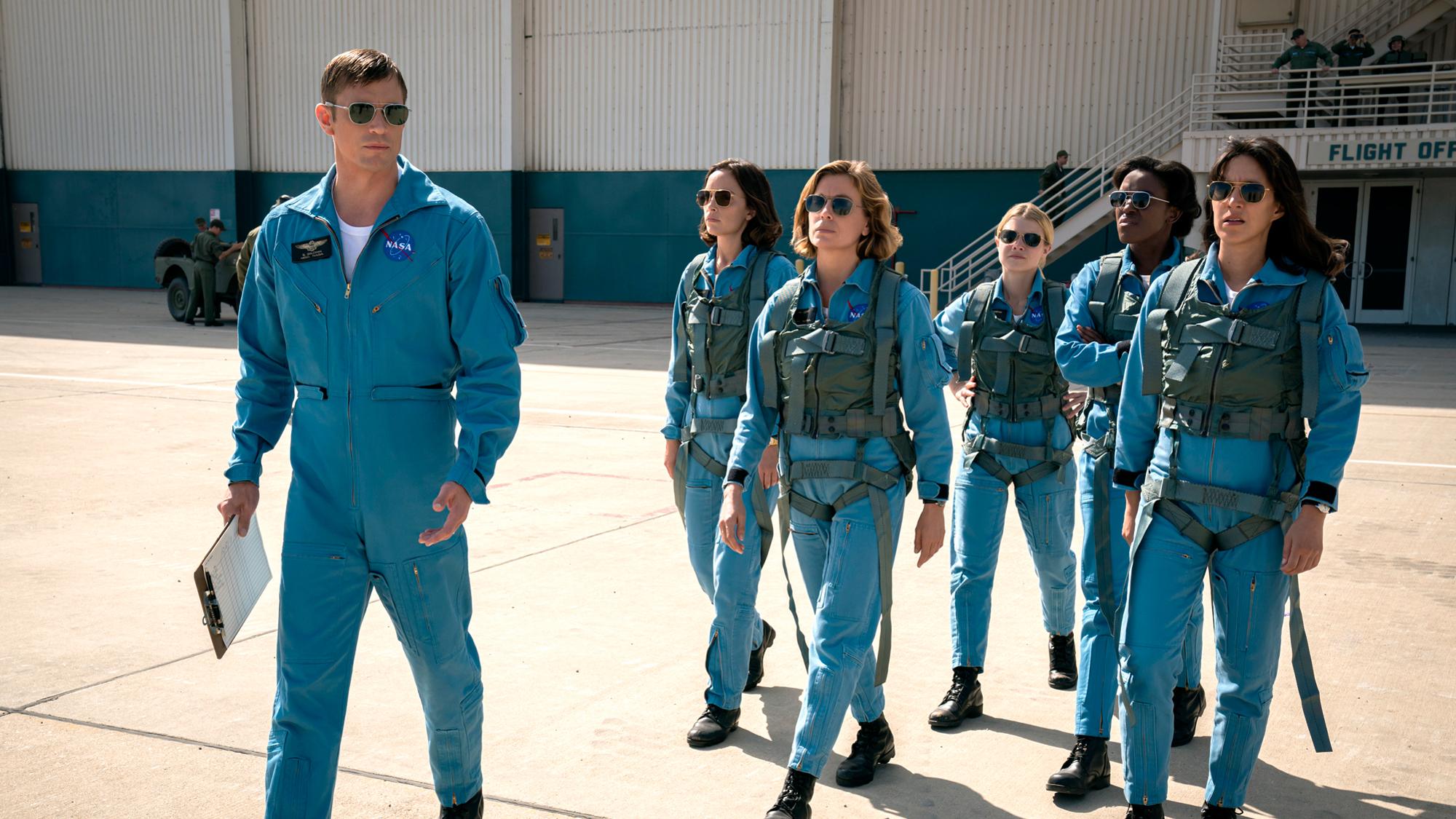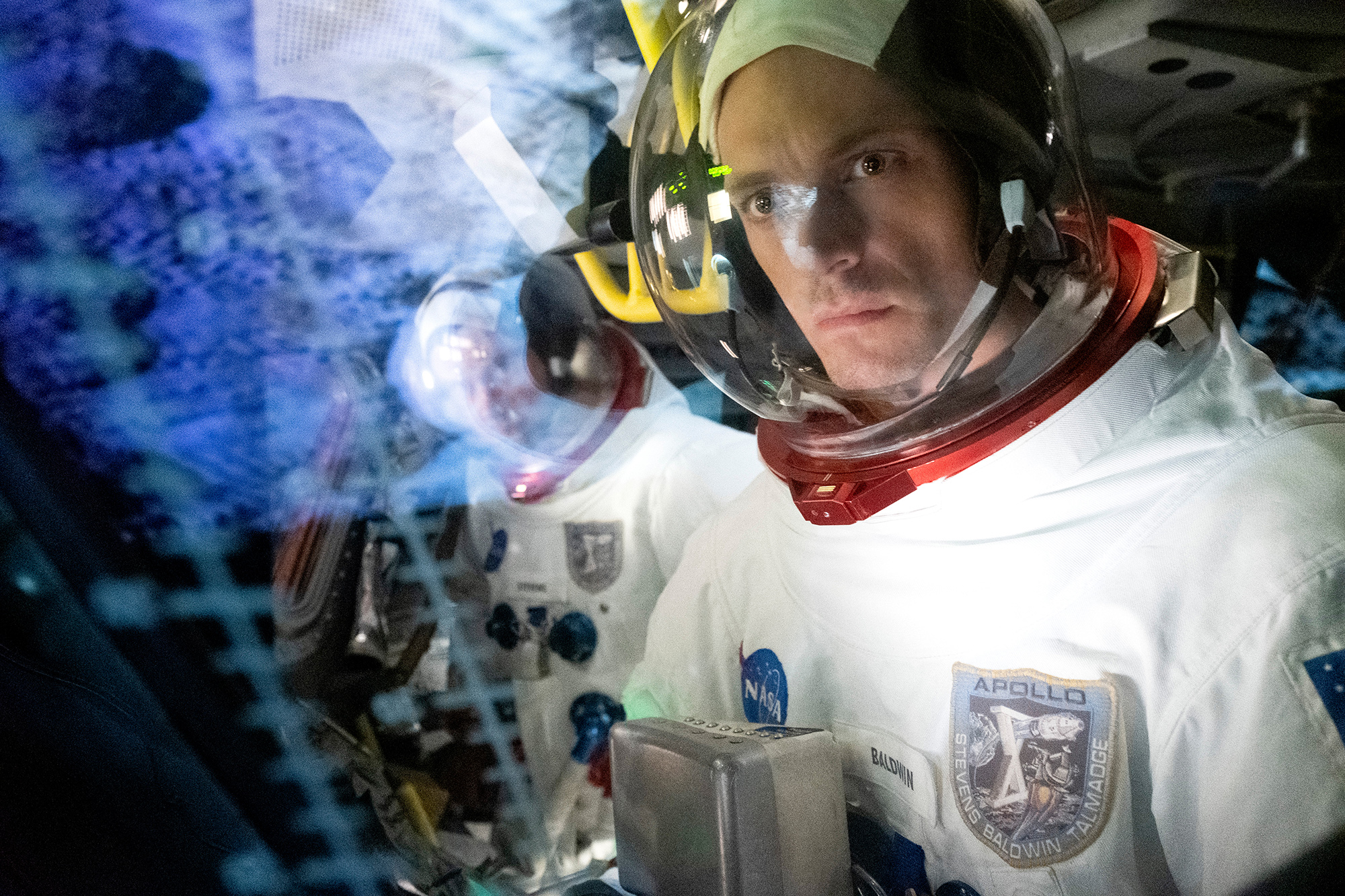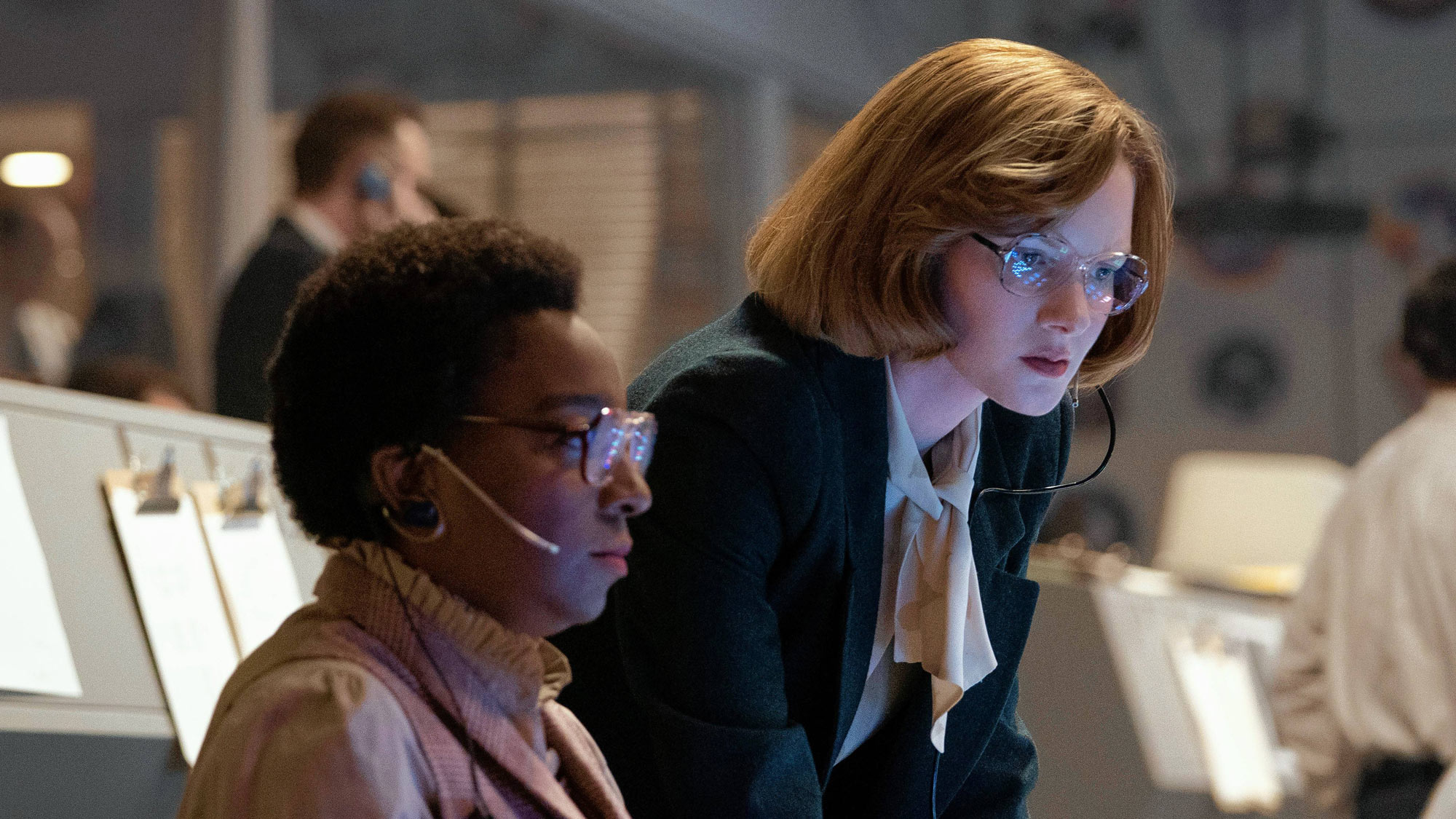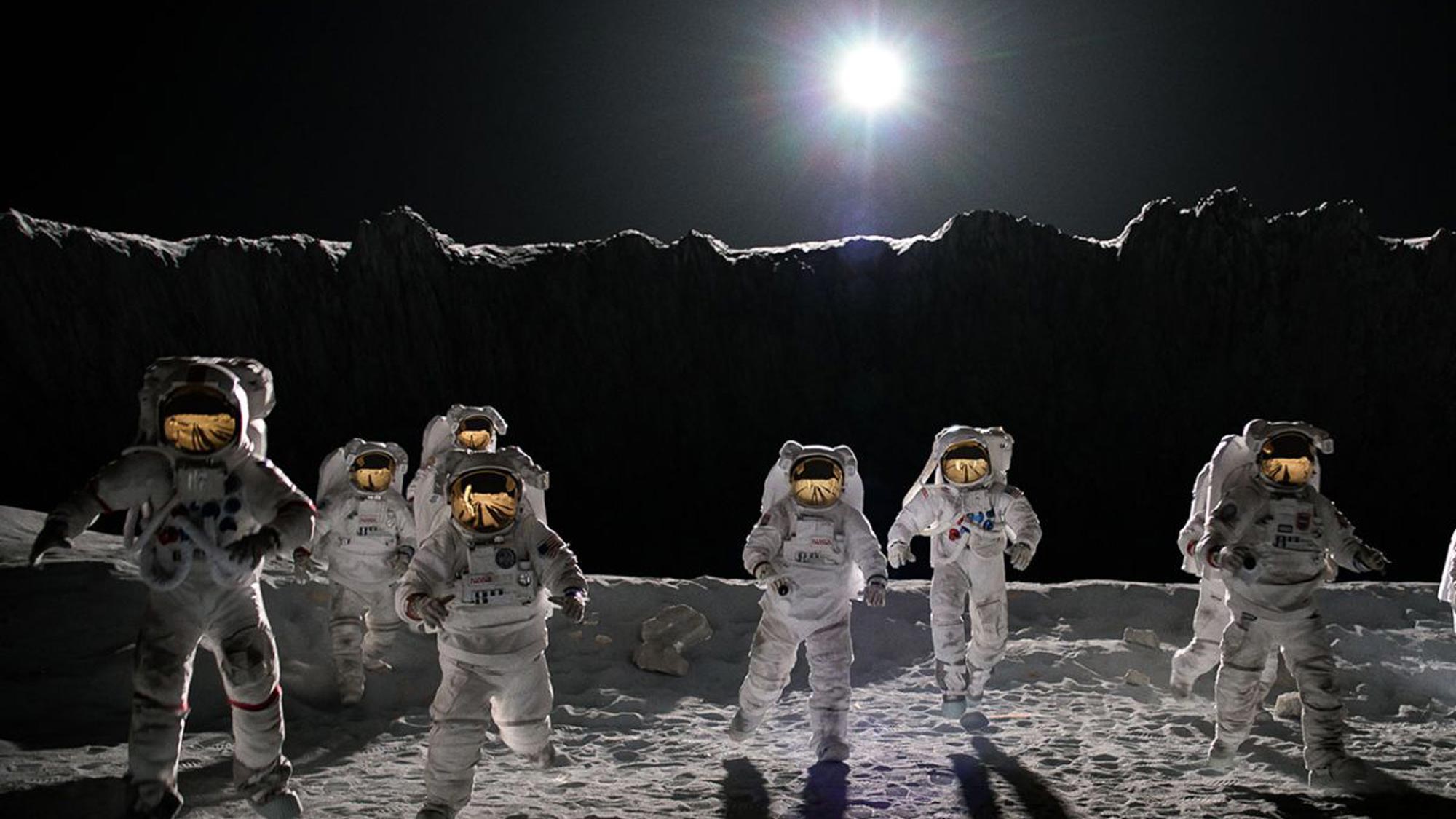I finally got into For All Mankind, and I'm annoyed I waited this long
Don't let your own failure to launch stop you

Here at Tom’s Guide our expert editors are committed to bringing you the best news, reviews and guides to help you stay informed and ahead of the curve!
You are now subscribed
Your newsletter sign-up was successful
Want to add more newsletters?

Daily (Mon-Sun)
Tom's Guide Daily
Sign up to get the latest updates on all of your favorite content! From cutting-edge tech news and the hottest streaming buzz to unbeatable deals on the best products and in-depth reviews, we’ve got you covered.

Weekly on Thursday
Tom's AI Guide
Be AI savvy with your weekly newsletter summing up all the biggest AI news you need to know. Plus, analysis from our AI editor and tips on how to use the latest AI tools!

Weekly on Friday
Tom's iGuide
Unlock the vast world of Apple news straight to your inbox. With coverage on everything from exciting product launches to essential software updates, this is your go-to source for the latest updates on all the best Apple content.

Weekly on Monday
Tom's Streaming Guide
Our weekly newsletter is expertly crafted to immerse you in the world of streaming. Stay updated on the latest releases and our top recommendations across your favorite streaming platforms.
Join the club
Get full access to premium articles, exclusive features and a growing list of member rewards.
I didn't really "get" For All Mankind back when Apple TV Plus started. One of Apple's four original shows (next to Dickinson, See and The Morning Show), the pilot episode had — to pardon the astronaut pun — a failure to launch for me. Little did I know that it would be one of my favorite shows on TV.
And for a bit of context, I'll say that For All Mankind had a bit of an uphill climb for me. History has always been my weakest subject, dating back to high school. So, when word came that Apple teamed with Battlestar Galactica reboot mastermind Ronald D. Moore? Well, I wasn't that keyed in (unlike my colleague who had the pre-existing interest and also loved FAM after a late start). All I knew was that it was cool that the first episode had Chris Bauer (who I knew as Frank Sobotka from The Wire) as NASA administrator Deke Slayton.
But, here I am, thinking about my own alternate reality. One where people have to buy 'late passes' for when they're late to start a show. Because if such a reality existed? I'd be yelling "go buy a late pass to For All Mankind. It's worth it."
I'm sure I'm far from the only one who hasn't given For All Mankind a proper chance (it's far from the most buzzed about Apple TV Plus show, and even then, have enough people seen Severance or Ted Lasso?). And that needs to change.
A fair warning: For All Mankind is a slow starter
Beyond my lack of an interest in a story based in the late 1960s and early 1970s, I'll admit that For All Mankind is one of those shows that has to do some world-building. This is script-writer-speak for spending some early episodes introducing you to a bunch of characters, as its big stories are only able to truly unfold once things are established.
In my defense, I always hate this concept of a slow starter. Wouldn't a great show be even better if its first episodes could both build a world and be compelling? I'm not a scriptwriter (only took two college courses on it, which isn't enough to say much), though, so I can't throw stones too hard at their estates.
That said, if you have trouble? I implore you to push through the first episodes of For All Mankind. The first episode, for whatever reason, crash-landed both the first time I saw it and the second time (years later) as well.
Get instant access to breaking news, the hottest reviews, great deals and helpful tips.
Episode three, though, is where you should start to get emotionally connected to the story of For All Mankind. In it, NASA's plans pivot yet again, as President Nixon pushes them to change their strategy.
For All Mankind isn't just about the space race
Existing while For All Mankind season 3 is going on, I know that the series' reach far exceeds our Moon that season 1 is so intently focused on. For All Mankind is all about its own (at times similar) version of history.
But, to be frank, I need you to know that space is just a setting for For All Mankind. Similar to how the Greendale Community College was just the setting for Dan Harmon's Community, and how the The Arconia — the 'building' in Only Murders in the Building — is an elaborate way for that show to have so many esoteric characters in a close proximity.

For All Mankind uses NASA to collect a group of very driven people and their beleaguered partners, and then watch them struggle, work and hopefully succeed. The first you'll meet is Edward "Ed" Baldwin (Joel Kinnaman), a top astronaut who has gone through a lot of trouble, which isn't stopping. He's made to look better by being contrasted against the Gordon "Gordo" Stevens (Michael Dorman), who makes his mistakes frequently.
While both didn't prove compelling to start, they eventually will thanks to the rest of the cast. Ed's wife Karen (Shantel VanSanten) is one of my favorite characters throughout the first season, as she goes through all the emotions of someone whose partner lives such a dangerous life. And then there's Tracy (Sarah Jones), Gordo's wife, who is a bit more compelling out of the gate than her husband, and gets a bit more to do as well.

All that said? NASA engineer Margo Madison (Wrenn Schmidt) has been my favorite throughout the entire season. Driven to succeed, but not exactly interested in playing NASA's games to advance, Margo is my kind of character.
Outlook: For All Mankind gets relentlessly emotional — and I can't wait to watch more
I wouldn't be writing this article today were it not for the final three episodes of the first season. Yes, that's my way of stating I've only watched the first of three seasons. In my defense, I don't feel like I'm being premature in writing this article. Not only do my colleagues say the show gets better, but the Rotten Tomatoes scores bear that out: season 1 got a polite 74%, season 2 got the rare 100% and season 3 almost repeated, getting a 97% score.
But, back to the first season. Once For All Mankind gets its astronauts in orbit and their engineers and families on the emotional edge of sanity, it goes in for the kind of emotional gut punches that will hook you into the series. I can't explain who does what, but from the telegram from the Russians to the phone call from the police station (not to mention the docking issues in the finale), For All Mankind had me absolutely riveted. That's a huge sign of quality when I had trouble finding it in me to care about the series at first.

Were it not for the plethora of new shows that we're covering at Tom's Guide right now — House of the Dragon and She-Hulk both come to mind — I'd have made more progress on season 2. Everything I hear tells me I need to catch up immediately before any spoilers hit my eyes. And my colleagues are already excited about For All Mankind season 4 (which is confirmed).
So, dear reader, join me in this race to catch up on an alternate history of the space race. Trust me, it's worth it.
Next: Me Time with Kevin Hart and Mark Wahlberg is No. 1 on Netflix — but critics absolutely hate it. And get ready to get shwifty, the Rick and Morty season 6 release date is almost here.

Henry was a managing editor at Tom’s Guide covering streaming media, laptops and all things Apple, reviewing devices and services for the past seven years. Prior to joining Tom's Guide, he reviewed software and hardware for TechRadar Pro, and interviewed artists for Patek Philippe International Magazine. He's also covered the wild world of professional wrestling for Cageside Seats, interviewing athletes and other industry veterans.
 Club Benefits
Club Benefits










